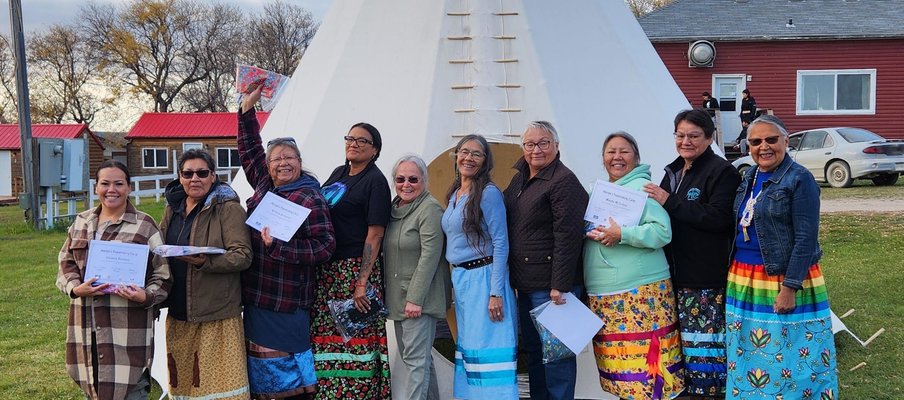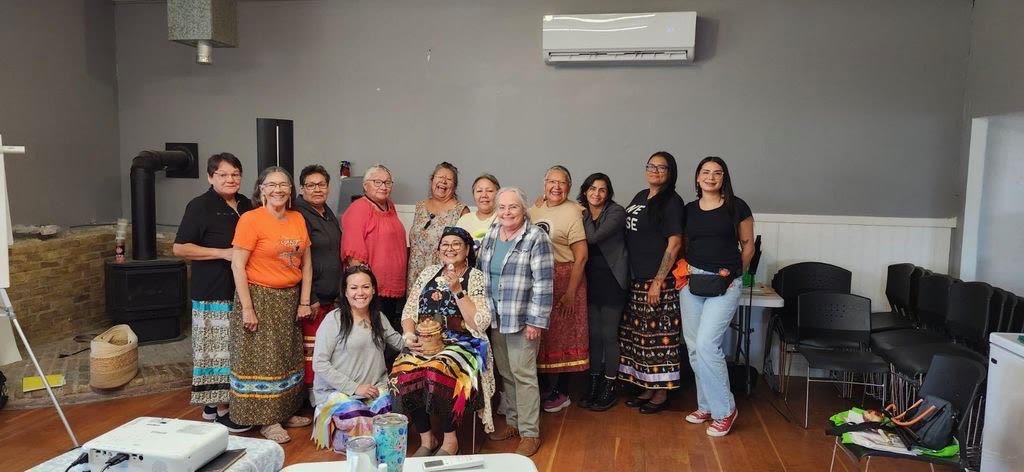First Nations communities reclaim traditional ways

Related Programs

A gathering of women, grandmothers, and Knowledge Keepers harnessed traditional ways and knowledge to better advocate for healthy familial structures and communities.
Susan Jolly-Maxie, an organizer of the event from White Bear First Nation, says the vision for the gatherings was to reawaken traditional laws and ways of maintaining good relations in the family structure.
“We’ve heard Elders talk about this for years,” she says. “Bringing people back together in a circle to talk things out in good relations to provide women with the skills of handling conflict and apply those back in their communities was our goal.”
The land-based Woman’s Peacemaking Camp, held in fall 2024, was developed after local child welfare prevention services in the community identified the need to support and empower families to take care of each other. The event hosted members from White Bear, Ochapowace, Pheasant Rump, Cowessess, Ocean Man, Zagimē Anishinabēk, and Kahkewistahaw First Nations communities.
Jolly-Maxie explains that, in traditional laws, women and matriarchs were often conflict resolvers who promoted healing in family units. “We had to reawaken these laws because we rely so much on outside systems that make decisions for us when we find ourselves in disagreement and disputes.”
"We had to reawaken these laws because we rely so much on outside systems that make decisions for us when we find ourselves in disagreement and disputes."- Susan Jolly-Maxie
She continues, adding that healthy communication, conflict resolution, and consensus decision-making are all elements of traditional teachings that have been lost in colonial systems. “There is a lot of emphasis in these gatherings to explore what deep listening means while encouraging one another to speak and share in a good way. Healthy communication needs to be built.”

Land-based teachings and activities were incorporated to further promote traditional ways of doing things. “The time of year was perfect because we wanted to incorporate chokecherry crushing and pemmican making,” Jolly-Maxie says. “People start to remember what they were taught by their grandparents and begin to reclaim those teachings when engaging in these activities together.” Incorporating hands-on elements while engaging with the land strengthened the group’s ability to build trust and connection.
The camp received strong positive responses from participants who left feeling empowered and equipped to navigate and resolve difficulties in their families and communities. Involving multiple communities allowed the organizers to “plant seeds,” as Jolly-Maxie calls it.
“When we’re talking about kinship, we aren’t restricted to boundaries just within our own bands,” Jolly-Maxie says. “Extending our community work to other bands are ways other communities can organize these types of events moving forward.”
This project received support from SaskCulture’s Community Cultural Engagement and Planning Grant, with funding from Sask Lotteries Trust Fund.




